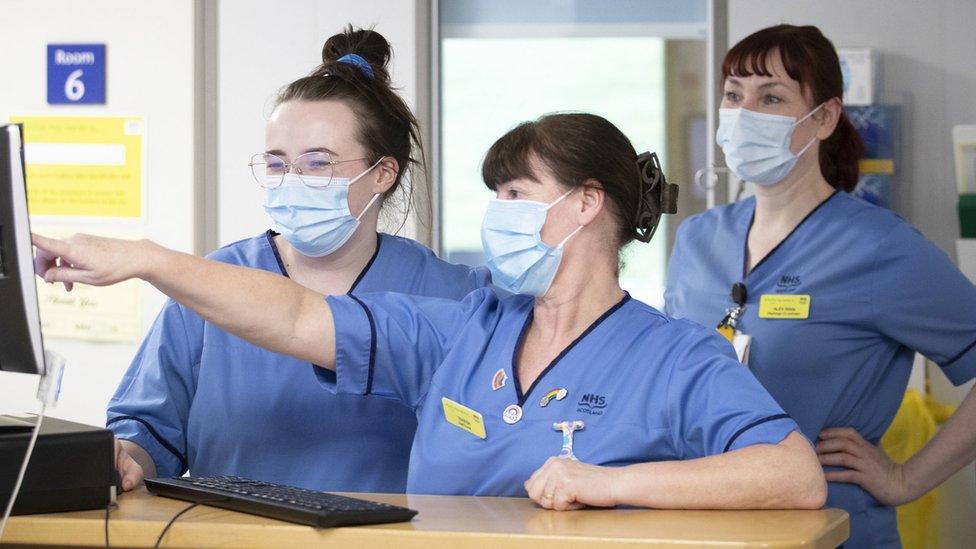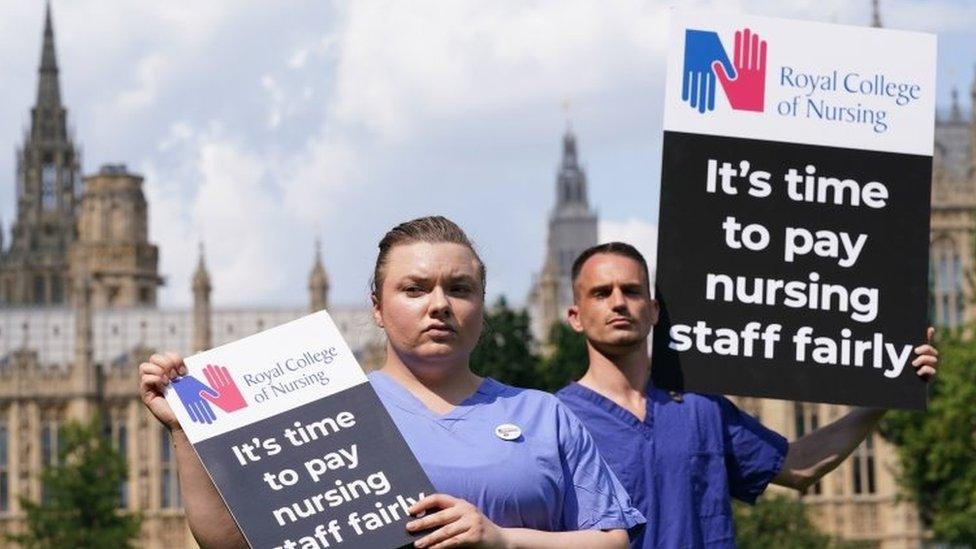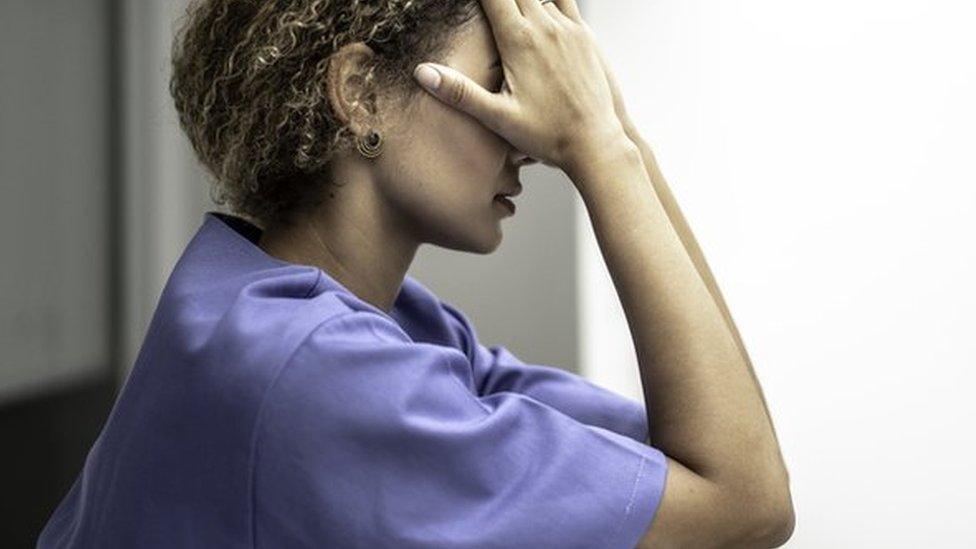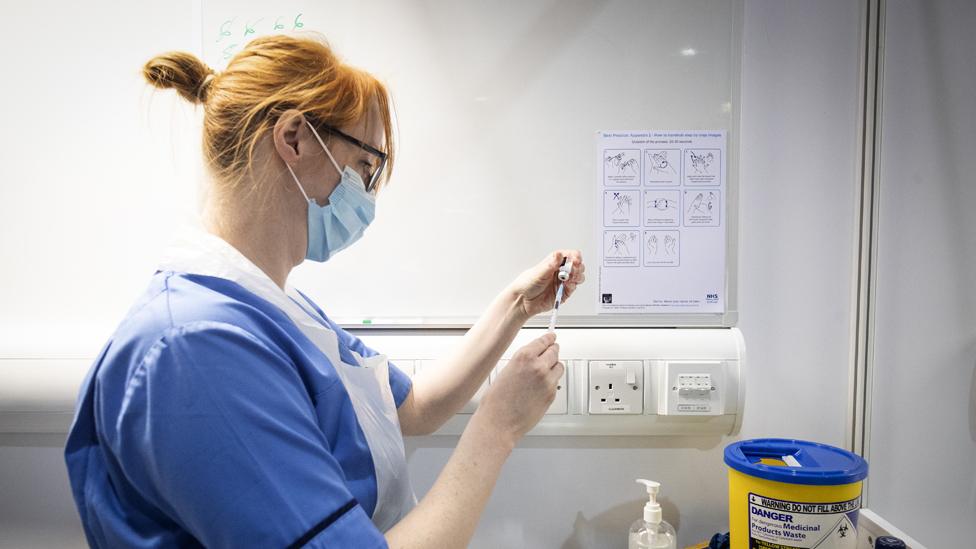Nurses strike: Nurses sleep in cars as they cannot afford fuel
- Published

The Royal College of Nursing members will hold two strike days in December
Some nurses are sleeping in their cars because they cannot afford the fuel to get home, according to a nursing union representative.
Sandy Harding, the RCN's associate director of nursing, said nurses felt "burnt out" and that current staffing levels were "unsafe".
The Royal College of Nursing (RCN) are asking for a 19% pay rise and plan to strike on 15 and 20 December.
The UK government said the pay demand was unaffordable.
The Welsh government said it cannot afford the increase without extra Westminster funds.
Health is a devolved issue, meaning the Welsh government is responsible for health services in Wales.
Nurses from parts of Wales, England and Northern Ireland will join the strike, although they have said will continue to provide emergency care.
Ms Harding described how the lack of staff and pay conditions "means you don't take your lunch, it means some people actually sleep in their cars at night because going home isn't an option because they can't afford to pay for their fuel to get back."

Ms Harding said they have not got enough staff to actually provide the safe and effective care that they would like to provide to patients, which means that they do not take breaks
She added that members had "had enough of being taken for granted".
There could be more strike action after Christmas, if the Welsh Government do not agree to their proposal of a 19% pay rise, Ms Harding warned.
'Unable to increase our pay offer'
In a statement, a Welsh government spokesperson said: "We recognise why so many nurses voted the way they did and we agree nurses should be fairly rewarded for the work.
"We are unable to increase our pay offer without additional funding being made available by the UK government."
But RCN Wales' Helen Whyley, director of the RCN in Wales, argued affordability is not an issue when looking at the long term.
Ms Whyley said: "We have to use our money wisely, it's public money.
"We can afford to do this. When you pay nurses properly, they stay in work.
"When they stay in work, patients stay in hospital for less time. That saves money. Patients have less harm come to them, that saves money, and patients stay at home longer, and that saves money.
"But not only does it all save money, but it is absolutely crucial for the people in Wales to be able to access these services they want."
The UK government said the 19% pay rise demanded was unaffordable.
'We can stop having these arguments'
There is concern that patients could now be stuck in hospital over the Christmas period due to staff shortages.
However, Ms Whyley said that is a problem which is already happening.

Nurses with placards outside the Royal College of Nursing (RCN) in London
"We hear there isn't a bed, that's not the case. Beds are bits of metal. What we don't have is the staff, the nursing staff to look after the people that need to be in that bed," she said.
"Patients are waiting right now. If we tackle this issue, not just for the short term but for the long term, we can stop having these arguments for years to come.
"So this strike is all about patients and their care, and the effect that not paying nurses fairly has on those services."
Ms Whyley said that in the NHS alone there are 3,000 vacancies for registered nurses in Wales, adding: "The government can't afford not to sort this out."
- Published6 June 2022

- Published20 October 2021

- Published9 November 2022
